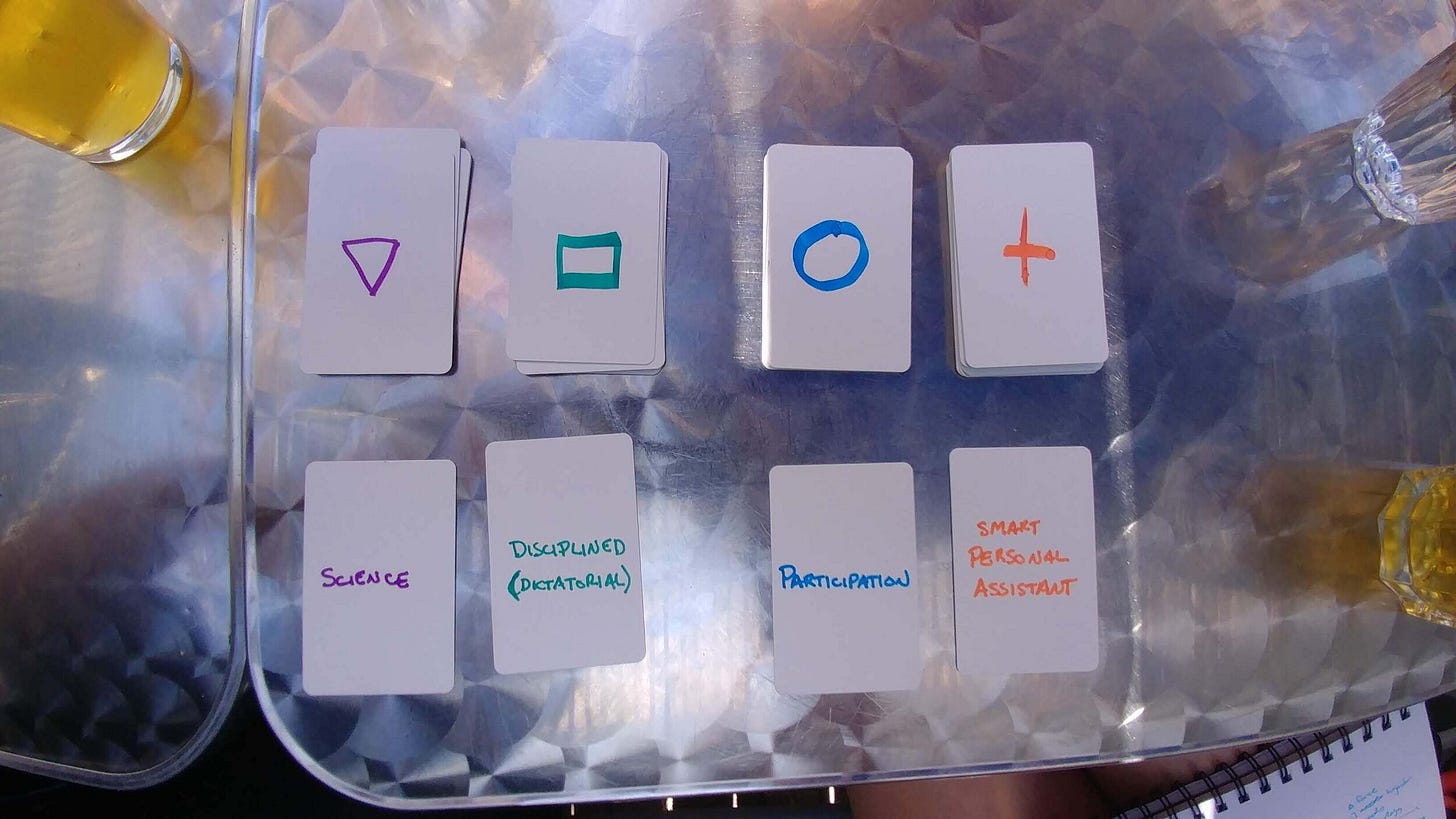Sci-Friday: Strategic Science Fiction
A set of workshop cards to peek around the corner to a variety of futures.
In today's #Sci-Friday feature, I'd like to revisit a project I initiated a few years back when I transitioned to futures design from a lengthy career in advertising.
In our data-driven age, I see science fiction as a vast repository of ideas from future possibilities. Basically, data from the future. Novels, films, video games, and the like are brimming with insights, inventions, implications from a smattering of futures. These sources provide a goldmine for those seeking inspiration for stories, screenplays, or scenarios. Prototypes often manifest as backdrops, situations, and objects within these tales.
I'm convinced that a lot people, having immersed themselves in science fiction, can be deemed armchair experts on the subject. Many have us have clocked our 10,000 hours of watching Star Trek, reading Dune, or playing The Last Of Us.
Equipped with a repertoire of recurring themes and a litany of time-honored clichés, the cards I've crafted serve as an invaluable resource. They enable creative blending and juxtaposition of elements, paving the way for hard sci-fi narratives that could plausibly unfold in countless potential futures.
There are four sets of cards in this deck.
Force cards (macro-economic externalities) are based on Leah Zaidi’s (of Multiverse Design) Seven Foundations worldbuilding paper. This, in my opinion, is the best worldbuilding framework for fleshing out macro forces.
State (the state of the future) cards are an expanded version of Jim Dator’s Four Generic Futures. I took some liberties and elaborated on some of the trajectories.
Need (basic human needs) cards are a combination of Maslow’s Hierarchy and Max-Neef’s fundamental human needs. While, respectively, one approach is hierarchal, and the other isn’t, the models can be used together or separated and used individually. Your choice.
Technology (the seeds of tomorrow’s tech) cards are based on the Wikipedia entry of List of Emerging Technologies. Depending on the context of the workshop, these cards can be curated on a case-by-case basis.
Wild Cards and Variables: There are a few cards that ask to be replaced or combined with another, and each set have blank cards for you to enter anything you need to fit the purpose of your session or workshop.
These cards don't have a single prescribed use. Choose to engage with all or just some of the categories. Whether you're diving into solo storytelling or brainstorming in a group workshop, they're perfect for sparking fresh ideas and envisioning potential innovations.
One structured way to work with the cards, that I personally find fruitful, is to fill in the blanks of a phrasal template (aka Madlibs).
In a world where [Force] is [State], people seek [Need] through [Technology].
In the example image above, you could express the selected cards as:
In a world where science is dictated (by the government? corporation?), people seek a sense of participation using their smart personal assistants.
While I don't recall the precise ideas we conceived using this particular combination, I remember it being a fruitful session that gave rise to numerous concepts and thought-provoking discussions.
For those who think visually, I've designed a straightforward template for you to sketch on as you develop your ideas. The aim is to achieve variety and volume—prioritizing quantity over quality.
I've facilitated numerous workshops using these cards; one notably included 300 participants. The compiled collection of sketched templates I assembled afterward was truly inspiring.
I hope this #Sci-Friday entry encourages you to explore the potential of these cards.







Wonderful Friday gift Dré. Super compatible, it would seem, with other decks (I see room here for throwing in Candy's mood cards from Thing From the Future). I will print off for some fun this weekend.
Curious, do you ever do sector-specific facilitation with cards like these? eg. Transportation, health care, etc.
Mad Libs for cards!